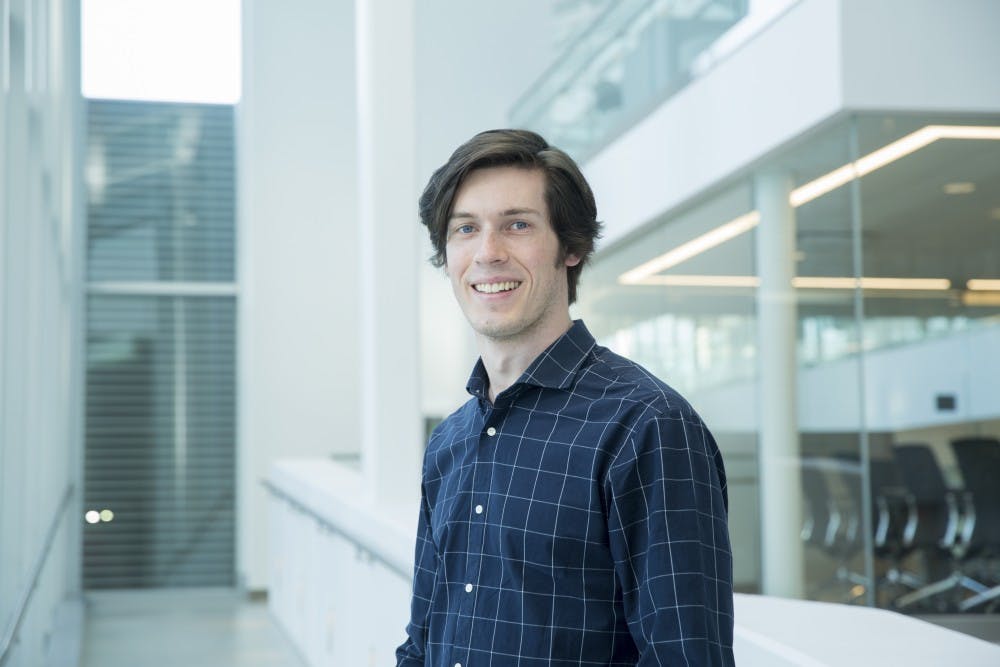
Rebecca Elias Abound | University Communications
Credit: University of Pennsylvania-UniveCollege and Wharton senior William Fryis on a mission to make coding easier and more efficient.
Fry received this year’s President’s Innovation Prize for his company SolutionLoft, which capitalizes on Fry’s method of reusing codes in order to make the development of software cheaper for his customers.
The prize awards $100,000 toward Fry’s venture, as well as $50,000 in living expenses.
While studying abroad in Berlin, Fry worked on several data engineering projects that required intensive coding that took a lot of time. That was when he came up with his award-winning idea.
“I kind of came to the conclusion that almost everything I was doing had already been done in some form or another,” he said. “So it was very redundant on my end. I wasn’t building anything new.”
Fry said he realized the current process for data projects was not only inefficient for the coders, but inefficient for the clients as well. Fry said, essentially, clients were paying for “something that’s already been done.”
Upon returning to Penn, Fry met with various professors and Ph.D. students, as well as his friend, 2016 Wharton graduate Jacob Wallenberg, who later became the co-founder of SolutionLoft. Fry credits Wallenberg with much of the success of SolutionLoft, noting that the two are “on the phone every day.”
Fry compares his method of reusing code to the idea of the printing press. Just as the development of the printing press took much of the manual labor out of the production of the printed word, Fry’s development of reusable code will take much of the manual labor — having to start from square one — out of building software.
“Before the printing press, if you were writing a newsletter or a pamphlet, you were rewriting a lot of the same things,” Fry said. “And then they had the movable type, to abstract all of that manual labor away. So then you saw the proliferation of literature, etc. because you could mass-produce it. We’re trying to do the same thing with software.”
Fry said he owes much of the success of SolutionLoft to the Penn community.
Over the past four years, he has received over $18,000 through various Penn funds and programs, met his mentor, professor Jeffrey Babin, who Fry said is “invaluable,” and has worked with Penn students and alumni to build and operate SolutionLoft. Fry said that 80-90 percent of people who work on SolutionLoft are from the Penn community.
In five years, he hopes SolutionLoft will be “the cheapest and quickest way for you to get your software.”
The Daily Pennsylvanian is an independent, student-run newspaper. Please consider making a donation to support the coverage that shapes the University. Your generosity ensures a future of strong journalism at Penn.
Donate






